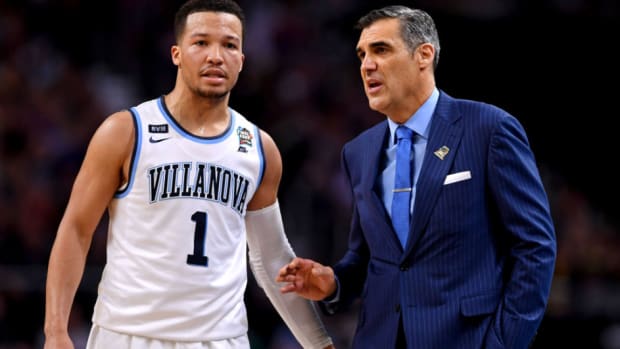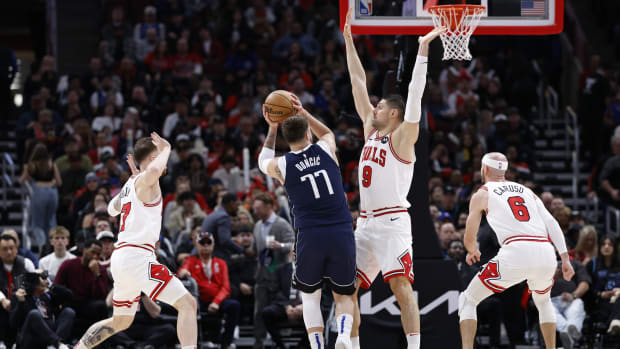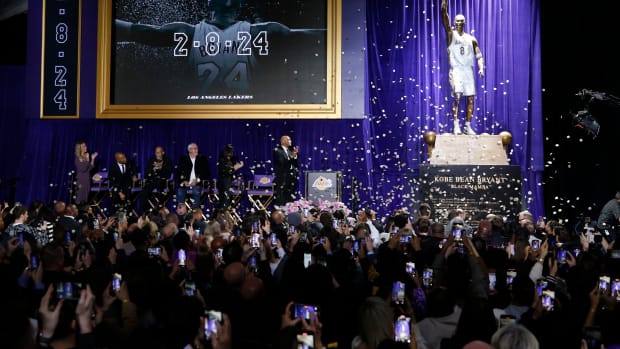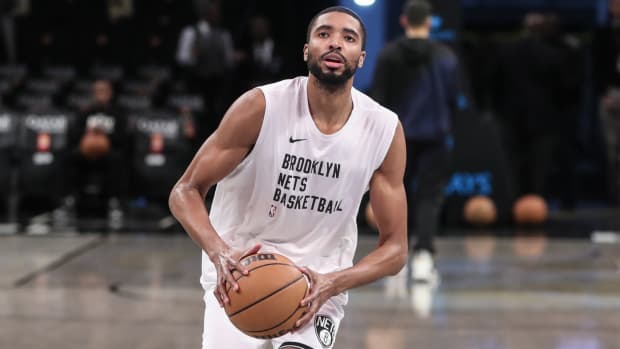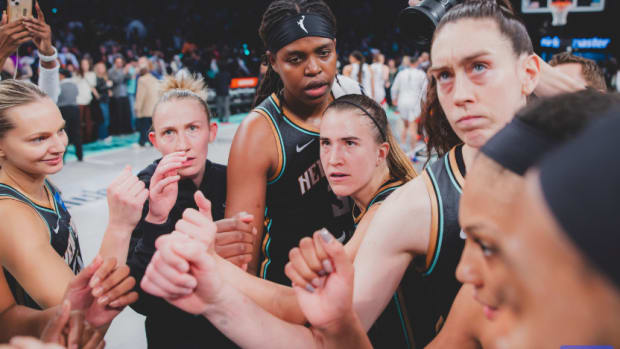After top two, lack of locks spreads uncertainty in volatile draft
This was a deep draft in which teams picking late in the first round or anywhere in the second might have come up with players capable of making a contribution in the NBA eventually. Yet there were very few obvious players of exceptional talent. After the predicted selections of Derrick Rose at No. 1 to Chicago and Michael Beasley with the No. 2 pick to Miami, who are the future All-Stars in this draft? Some league executives doubt there will be any; others imagine there have to be at least one or two, though there are no consensus names.
My own guess, based on conversations with league personnel executives, is that O.J. Mayo (No. 3 to Minnesota, then dealt to Memphis), Eric Gordon (No. 7 to the Clippers) and D.J. Augustin (No. 9 to Charlotte) are three guards who will make an impact over the next few years.
Among the draft's second tier, Mayo was seen as the player with the most NBA-ready game: a big combo guard who should help the Grizzlies at both ends of the floor. "I think he's going to get into people defensively," said a GM who rated Mayo among the four hardest workers in the draft. "He is a very competitive guy."
A couple of executives named Gordon as a shooting guard capable of becoming a prolific NBA scorer. "He has an NBA body already," said one. Added the other: "When it's all said and done, he's going to be one of the top two or three players in this class. One thing he can do is score and get to the foul line. The pro game is suited for him."
The latter exec also made a compelling case on behalf of Augustin. "I see a lot of Tony Parker in him," he said. "He has every shot in the book: a runner, a three-point shot. He's tough to guard, he runs his team and he can play with good players -- when you talk to [fellow former Texas players LaMarcus] Aldridge and [Kevin] Durant, they rave about him. Everything you want a point guard to do, he does."
But each of those players also has detractors who say that Mayo lacks upside and has a history of being involved in trouble, that Gordon is one-dimensional and lacks handling skills, and that Augustin is too small.
There's no telling who will ultimately have value from this group. That may be why this class generated so much intrigue and anxiety in the hours before it was brought to the stage. At times, it was close to impossible to predict what rival GMs were thinking. "I'm totally confused," said a team president Thursday afternoon as he tried to forecast the picks ahead of him in the lottery.
Maybe a presidential campaign or a bloc of daytime TV talk shows generates more misinformation and false alarm than this draft. Maybe. Less than 90 minutes before the first pick, I was on the phone with an executive of a lottery team who was hearing that the Timberwolves were going to take Kevin Love at No. 3, which would have made anarchy of the upper half of the first round. But that was not to be.
Something else would be, however. After the draft, it emerged that Minnesota VP Kevin McHale had acted on his well-known appreciation for Love by agreeing to send Mayo to Memphis in an eight-player blockbuster. The Timberwolves received Love and veteran shooter Mike Miller along with Jason Collins and Brian Cardinal. In return, the Grizzlies received the biggest prize in Mayo plus Marko Jaric, Antoine Walker and Greg Buckner, none of whom fit into the Wolves' long-range plans.
Each team ultimately got what it wanted from the draft. And Mayo turned out to be the swing player of the entire evening's exercise.
Based on the possibility of Mayo being available at No. 4, the Clippers had tried to move up by swapping picks with Seattle. It wasn't a bad idea for the Sonics, who still could have taken Russell Westbrook or Brook Lopez at No. 7. But the future first-rounder they would have received from the Clippers was so heavily protected as to be almost irredeemable by Seattle.
So that deal was called off, and the Sonics selected Westbrook at No. 4. This was an amazing jump for the UCLA guard, who had entered the draft in May imagining that he might go as low as No. 20. As recently as a few weeks ago, when I began mentioning to league executives that Westbrook might go as high as No. 4, some of them laughed at the idea. But on draft day, Westbrook had drawn the interest of the Knicks, Clippers and Bobcats -- all picking in the top 10.
All day long it was hard to nail down what anyone was planning to do. Were the Heat going to trade the rights for Beasley at No. 2 along with Shawn Marion to the Clippers for Elton Brand and the No. 4 pick (provided they could get their hands on it and Mayo was available)? Were the Grizzlies going to take Danilo Gallinari at No. 5? A source told me that Memphis was dissuaded in no small part by Gallinari's ability to remain in the Euroleague with his team in Milan, Italy. So Memphis chose Love instead, leaving New York to take Gallinari, who was booed by the Knicks fans who were attending the draft. Apparently they wanted the Knicks to take Joe Alexander instead.
Alexander went to the Bucks at No. 8 as the best player on the board even though they had acquired a star small forward (Richard Jefferson) earlier in the day. But Alexander will need time to earn a place in the Bucks' rotation, and there will be times when he and Jefferson can play together when the Bucks go small with Alexander at power forward or big with Jefferson at shooting guard. There is much to be said for a losing team picking the player it likes best, regardless of potential needs.






























